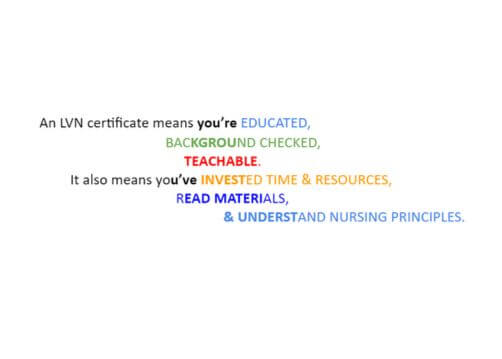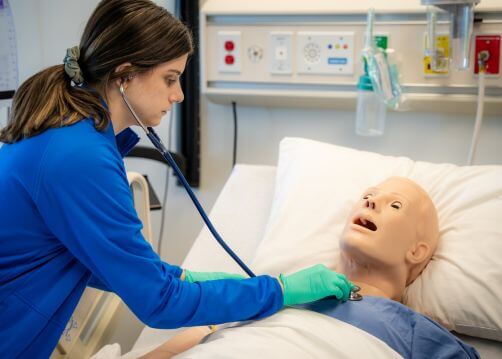LVN Students and Motivation
Date: September 8, 2018
We all know that incentives motivate us to do things, especially to learn. We can particularly see the importance of motivation in post-secondary and vocational education in adults, such as an LVN program. Fascinating is the internal motivation in adults and children following successful external motivation.
Yes, external incentives motivate learning, and we know that the external motivating factors play a much greater role in pushing them to learn in most children and adults. Positive and negative reinforcement systems, such as the grading system established in all our teaching institutions, from kindergarten to post-graduate and professional schools, have been very effective.
That’s why they have been used for centuries. However, multiple types of external reinforcing factors can be employed besides the grades or scores. We can successfully employ these external motivators at LVN colleges to help the nursing students on their way to learning.
When dealing with young children and even adults, possessional motivators can be used as a reward, such as a new toy, gadget, computer, or game. This is why many companies use promotional souvenirs, such as mugs, pens, hats, t-shirts, to motivate people to buy their services and merchandise.
Activity motivators are used to reward desired behaviors by giving bonus time-spending, such as enjoying a movie, game, or a party, which companies often do to reward their workers for a job well done. However, the most powerful of all the types of motivators and rewards is the social one. It is saying, “Good job!” or “Thank you!” or “I am proud of you,” that is the most valuable.
Interestingly, the most powerful of all motivators or rewards is free. It does not cost anything to say, “You are doing great. Well done!” Yet, this type of reward we value the most. If children never hear these words from their parents, their efforts to please mom and dad will feel futile, regardless of the toys, clothes, games, TV time, and other rewards they may receive. A hug, a kind word, is easy to give but not easy to get in our society today.
Teachers, instructors, and bosses often forget about these straightforward ways to reinforce and motivate positive behaviors. Soon, the external motivators lead to the development of internal motivators. This is why it is important to remember these simple things when teaching at an LVN school to help nursing students succeed.
By building their ego and self-confidence, we are building reliable, educated, and self-motivated healthcare professionals. By giving them external motivation to learn, we develop their internal motivation to grow.





